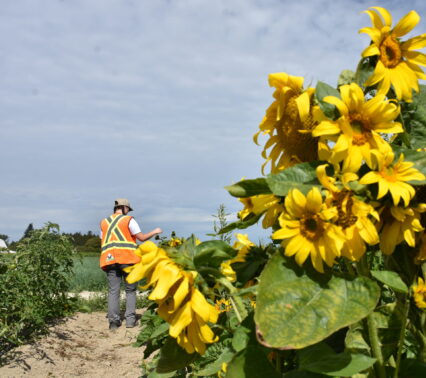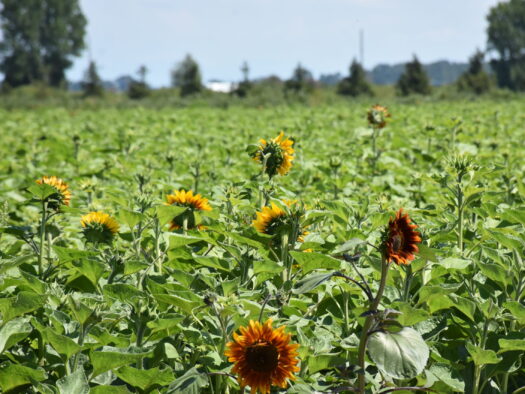
On-Farm Sunflower Research
Throughout this past summer and fall, DFWT has embarked on an exciting new on-farm research project in collaboration with Emma Lea Farms.
Emma Lea is dedicated to stewardship practices aimed at enhancing soil health and promoting pollinator habitat through their initiatives, such as planting cover crops and floral rows. In particular, their strategic planting of sunflowers as both field margins and fields have caught our curiosity regarding the potential benefits to both soil health and pollinators. This farm research aims to delve deeper into understanding the ecological benefits these practices may result in.

Our study explored soil composition of sunflower fields, margins, and control fields, revealing some interesting findings. The soil in sunflower fields contained the highest population of earthworms compared to the margin and control fields. Notably, no earthworms were observed in the other sites. This observation underscores the positive impact of sunflower cultivation on soil biodiversity; with earthworms playing a crucial role in enhancing soil structure and fertility In addition to the soil analysis, pollinator surveys were conducted to assess the abundance and diversity of pollinators in these fields. The results revealed an above average presence of bumblebees per survey minute in sunflower margins compared to other sites in Delta. This shows the potential role of sunflower margins in bolstering pollinator populations within agricultural landscapes.

This collaboration in on-farm research is an important approach to sustainable agriculture and biodiversity conservation. The practice of implementing sunflower margins or fields within agricultural landscapes can help
enhance earthworm activity and pollinator abundance.
How Can You Help?
Your donation will work towards conserving important farmland and wildlife resources contained in the Fraser River delta.
